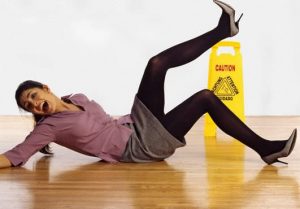 Anyone can fall at any time. In fact, these injuries cost more than $50 billion per year, in terms of things like broken bones and head injuries. Yet these physical wounds only tell part of the story. Many fall victims, especially older victims, are so afraid of subsequent falls that they basically become prisoners in their own homes.
Anyone can fall at any time. In fact, these injuries cost more than $50 billion per year, in terms of things like broken bones and head injuries. Yet these physical wounds only tell part of the story. Many fall victims, especially older victims, are so afraid of subsequent falls that they basically become prisoners in their own homes.
Due to the serious nature of these injuries, a Fort Worth personal injury lawyer may be able to obtain substantial compensation in these instances. This compensation generally includes money for economic losses, such as medical bills, and noneconomic losses, such as pain and suffering. Additional punitive damages may be available as well, in some extreme cases.
Types of Fall Victims in Texas
Under state law, nearly everyone who sets foot in a grocery store is an invitee. As the name implies, invitees respond to the owner’s express or implied invitation. An “open for business” sign is an implied invitation.
Furthermore, most invited guests benefit the landowner in some way. Employees provide a direct economic benefit, as do customers. Window-shoppers and vendors provide a potential economic benefit, and that possibility is normally sufficient.
If the victim is an invitee, the landowner has a duty of reasonable care. That’s one of the highest duties in Texas law. In these situations, an owner must keep the property reasonably safe. Furthermore, the owner must frequently inspect the property to ensure ongoing safety.
A few grocery store fall victims are licensees. These individuals have permission to be on the land, but they provide no benefit. People who cut across parking lots on their way from one place to another are usually licensees. The duty of care is lower in these situations.
Establishing Knowledge in Tarrant County
Legal duty is the beginning of a negligence claim, but it is not the end. To obtain compensation, victim/plaintiffs must also establish that the owner knew about the dangerous property condition which caused the fall. That condition could be a wet spot on the floor, a loose handrail, or almost any other hazard. Evidence of knowledge could be:
-
Direct: During a lawsuit’s discovery phase, attorneys often uncover direct evidence of knowledge. These smoking guns include restroom cleaning reports, “cleanup on aisle three” announcements, and repair estimates.
-
Circumstantial: In the absence of direct evidence, victim/plaintiffs may use the time-notice rule to establish constructive knowledge (should have known). Think about a banana peel on the floor. If the peel is yellow, it probably just fell on the floor, so there is no knowledge. But if the peel is gritty and black, constructive knowledge probably attaches.
The victim/plaintiff must establish knowledge, and all other elements of a negligence case, by a preponderance of the evidence (more likely than not).
The Open and Obvious Defense
Recently, the Texas Supreme Court revived this defense in grocery store fall cases. Generally, the owner is not liable for damages if an open and obvious hazard caused the fall. Some examples in grocery stores include wayward cans of green beans on the floor, product displays, and perhaps colored liquid spills.
Most grocery store fall victims are older people, and the open and obvious defense often does not apply in these instances. Many older people suffer from Age-related Macular Degeneration. AMD degrades straight-ahead vision, so many of these people cannot see hazards which are open and obvious to everyone else.
Grocery store falls often cause serious injuries. For a free consultation with an experienced personal injury attorney in Fort Worth, contact Herreth Law. Home and hospital visits are available.

